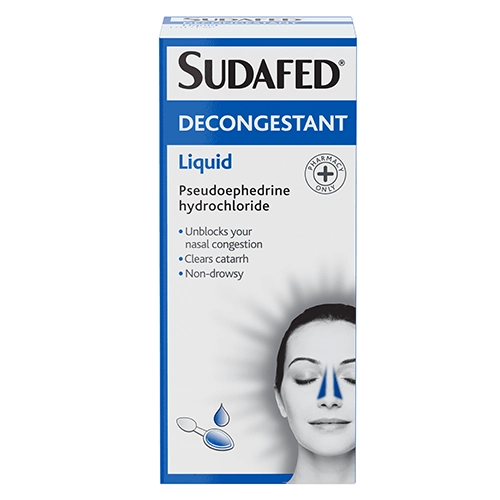In a society where there is an abundance of free information as well as a dread of any invasion of personal privacy, healthcare providers face growing threats of releasing any patient information. The reasons for maintaining patient confidentiality are not only legal obligations but also a prerequisite for quality healthcare provision and creating patient confidence. Patients’ sensitive information is correctly guarded due to the provision of HIPAA compliant answering services that advanced research shows fulfill these needs.
Such services are expected to meet certain fundamental performance requirements under the Health Insurance Portability and Accountability Act and the use of sophisticated protective features such as encryption and monitored access. It is possible for healthcare practices to delegate communication to HIPAA compliant services and make sure that patient information is adequately protected, legal requirements are met, and more resources are dedicated to the patients which in return will help create a more secure and safer healthcare system.
Understanding HIPAA Compliance
HIPAA compliance is necessary to protect patients’ sensitive information privacy within the healthcare system. It imposes the highest degree of protection for all aspects of protected health information (PHI) and strict guidelines and policies on providers and partners. Compliance is implementing safeguards such as encryption, access controls, and audits that restrict access to unauthorized persons or systems to avoid data breaches.
This violation can incur very high risks, including monetary penalties or a loss of professional credibility. All stakeholders need to appreciate that HIPAA compliance is quite important for ensuring that patients’ information is well protected, as required by law, and facilitating the use of technology in sharing patients’ medical information in today’s world of globalization.

Communications in Healthcare: The Importance of Answering Services
Answering services enable communication between patients and health care providers with ease. The services include providing information, handling of calls, managing appointments, and directing emergency calls. These services ensure that patients get attended to as soon as possible, improving patient retention and satisfaction. Answering services on the other hand, relieves the health center’s personnel of excessive administrative load, thus giving them more time to manage the patients optimally.
Answering services, when viewed as an integrated part of healthcare practices, assist in speeding up business processes and practices and assist in propelling business productivity positively. This especially includes the period when the office is closed, but the patients’ questions and care aspects have to be attended to.
Problems That Arise Without HIPAA Compliance
Leading HIPAA compliant answering services ensures that no sensitive patient information is leaked to outsiders, a situation that presents significant risks such as fines, destruction of reputation, and loss of patients. Those who do not comply with HIPAA regulations face various damaging consequences, ranging from minor to very severe cases, where the penalty or fine can range from thousands to millions of dollars.

Advantages of Using a HIPAA-Compliant Answering Service
Data Security: Answering services compliant with HIPAA adhere to data security measures to keep patient data safe. This involves data encryption, data storage practices, and restriction access to unwanted personnel to protect against data loss or unauthorized access to data.
Confidentiality: Patients know information about their health needs. Thus, they expect healthcare staff to keep their information and medical history private. Call answering services, on the other hand, are HIPAA compliant, which implies utmost discretion and confidentiality is exercised at all times.
Compliance Expertise: Such an act has numerous complexities and takes up most of the employees’ time. Healthcare call centers employ specialized staff who have extensive experience in healthcare compliance, which is governed by HIPAA standards to guarantee legal compliance.
Improved Patient Experience: Call answering services ensure that every interaction acknowledged enhances the experience of both patients and practitioners. Every opportunity is taken to make the patients feel comfortable about their information, and health providers make sure privacy is assured.
Efficiency and Reliability: Answering services integrate communication processes so that health practitioners can concentrate on treating clients. In the course of performing this activity, be it booking nurses’ appointments, raising emergency calls, or even passing messages, HIPAA-compliant service and speed shall be maintained.
Efficacy of Answering Services in Respect to HIPAA Protocol
The following are some of the practices in line with HIPPA that underscore answering services:
Use of Appropriate Communication Methods: Appropriate communication methods should be used to transfer such information, for instance, encrypted methods.
Employee Training: Communication techniques, HIPAA, confidential information policies, and patient handling need regular retraining of employees.
Audits and Surveillance: Adherence to HIPPA’s requirements, including its provisions to prevent threats, is monitored and managed on an ongoing basis.
Selecting a Suitable HIPAA-Compliant Answering Service
The selection of a HIPAA-compliant answering service is no easy chore, considering certain attributes:
Certification and Compliance. As it is with any service provider, it is crucial to ensure that they are US-based HIPAA-compliant feet services and you have certifications to assure you of security.
Service Capabilities: Understand the service levels when answering healthcare calls, comprehend medical language, and provide care to patients.
References and Reputation. Ask for references from other healthcare practitioners and read customer reviews to assess the service provider’s reputation and dependability.
Customization Options. Find out if your practical answering service offers customizable options related to the healthcare practice’s requirements.
Conclusion
Lastly, embracing HIPAA-compliant answering services should form a crucial aspect of operational strategies for healthcare businesses attempting to manage patients’ privacy, legal network adherence, and patient satisfaction. Healthcare practices can off-board such nonclinical activities to a HIPAA-compliant vendor and concentrate on rendering the best quality care without compromising and protecting patient data. There is more to selecting HIPAA-compliant answering services than being business savvy. Health systems are becoming increasingly necessary to safeguard patient privacy and confidentiality as the industry advances into virtual care and technology.
Engaging a suitable HIPAA-compliant answering service can benefit healthcare providers by enabling operational efficiencies, risk reduction, and the ethical protection of patient data, which is central to healthcare.






